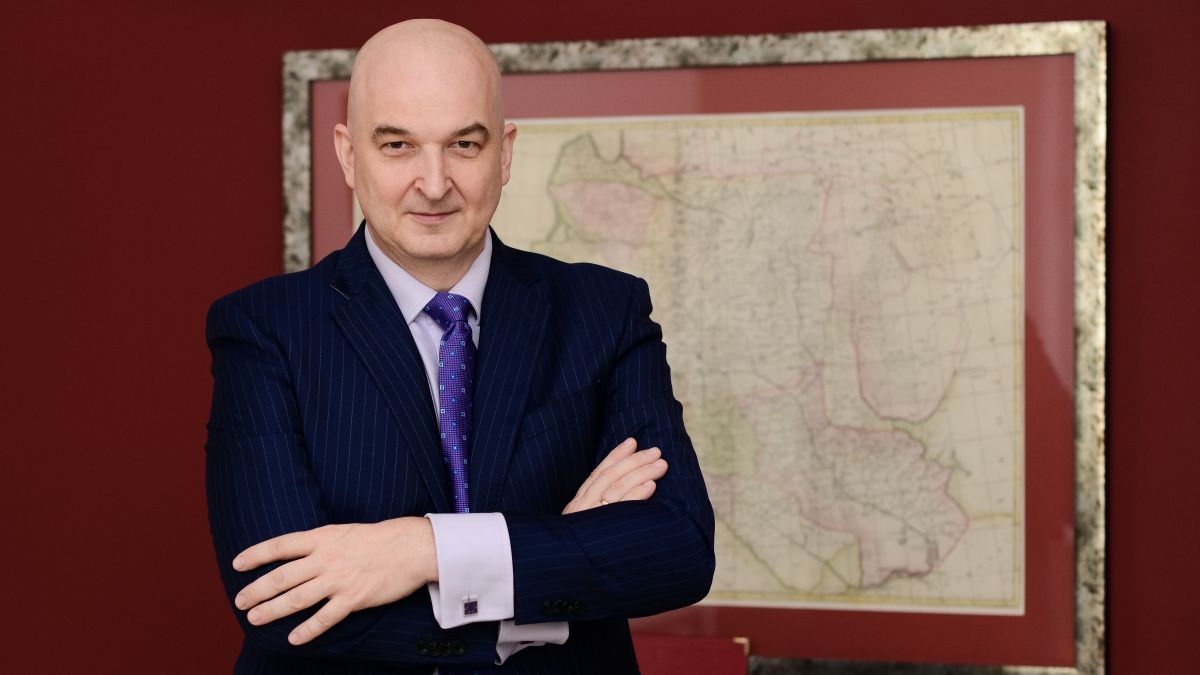Is There Life After Brexit? — Interview with Charles Grant
 PISM
PISM
SD: It seems that European integration has been decelerating. It has become more and more difficult to achieve unity. Tensions between the United States and Europe have also heightened. Perhaps there is a trade war ahead of us. Many observers claim that we are witnessing the disintegration of the West. I believe they exaggerate. What is your opinion?
CG: Europe has had problems with shaping its unity since time immemorial, but the current situation is particularly challenging. Trump appears to have abandoned many of the values that bind the EU and the US close together. Russia is an unpredictable menace to both central and Eastern European states. Against this background, the rift between Poland and Hungary and the main West European powers – on ‘rule of law’, refugee quotas and much else – is serious and substantially weakens European unity in the long run.
You are one of Britain’s most known supporters of European integration and unity. However, most of your fellow countrymen refused to participate in the process of unifying Europe, and allowed themselves to be persuaded that the United Kingdom will develop better and faster outside the European Union. How will Brexit affect Europe?
Above all, it will weaken Europe as a security actor. We will surely talk about that later, as there are, of course, more problems. Italy is getting a government in which some of the leading lights wish the euro and the EU ill. Plus, the euro still lacks firm foundations, and Angela Merkel’s government, much weaker since the German elections, is unwilling to agree with many of Macron’s plans to strengthen the euro. That is a lot of challenges for the EU to cope with, all at the same time. That is not easy at all. And it will be even more difficult without the United Kingdom in the Union.
How will Britain manage without the European Union? Are the British ready to pay the costs necessary to rebuild the regulatory, administrative and technical infrastructure necessary for an independent, non-aligned global trading nation?
The shape of the Brexit deal that Britain will forge with the EU is still not clear. But my prediction is that Britain will go for a softer form of Brexit than seemed likely last year. It will remain in a customs union with the EU for many years to come and perhaps for ever. For the trade in goods, the UK will align with the rules of the single market. But the future UK-EU trade agreement will not cover much in services, which means that important UK industries such as finance, aviation and media will suffer.
Will Brexit create a new economic model in Britain, or will there be a return to cooperation with the Commonwealth countries?
No, there will be no new economic model at all! Some Brexiteers would like an ultra-liberal, Hong-Kong-style deregulated economy, but many Conservatives, and certainly the bulk of the British people, want to maintain most of the regulations that we have through EU membership. In any case, if the UK did try to win investment by lowering standards, the EU would punish it. There will be attempts to forge trade agreements with white Commonwealth countries, but their economic significance will be minimal, and in any case the UK cannot implement new FTAs with anyone while it is in a customs union with the EU. This is a trap and not everyone is aware of its existence.
What is the future to the Anglo-American “special relationship” after Brexit? Will Brexit contribute to the German-American antagonism demonstrated by President Trump, or will it increase the value of Germany as a partner to America?
It is not yet clear where UK foreign policy will position itself between the US and the mainstream of the EU, represented by Germany and France. The instincts of some leading Brexiteers would be for getting close to Trump. But the substance of what Trump is doing and saying makes that impossible. The UK cannot align with Trump on climate change. It decidedly does not share his approach to the Iran nuclear agreement, as well as to the WTO and free trade. The interests of the United Kingdom remain European in that matter!
Will the EU manage without Britain? Who will be able then to stand up for the liberal economic values without the City of London?
Without the UK there will be less pressure within the EU for free trade agreements. Instead, pressure will be put on extending the Single Market. There are of course many other EU states that believe in free trade, but they tended to hide behind the UK, more powerful than them. The new Dutch-led ‘Hanseatic’ grouping of eight northern countries may try to apply pressure for free trade, even though it was founded to take a (Germanic) view on eurozone reform. Maybe Poland should join this group? There is scope for countries like Poland and the Netherlands to speak out for economic liberalism, more than they used to.
What will be the future of the UK financial industry after 2020? Is it sustainable without the Single Market access? Will Britain become a hub for the Industrial Revolution 4.0?
The City of London will remain the world’s leading international financial centre, post-Brexit. Perhaps three quarters of its business is nothing to do with the EU. Nevertheless it will take a hit.
How is that going to happen?
France and the Commission are pushing strongly for a deal that doesn’t do much to give UK-based firms access to European markets post-Brexit. Banks, fund managers and other firms will move jobs to continental cities – but initially the moves will be measured in hundreds or thousands of people, rather than tens of thousands.
What would be the effects of the proposed changes in the method of electing the European Commission (e.g. Spitzenkandidaten)? Will the composition of the new EU authorities still matter for Britain?
The UK will remain interested in who is running the Commission because so much of what the EU does will affect the UK. It will hope for a Commission of economic liberals. It seems likely that some version of the Spitzenkandidaten system will prevail again, as five years ago, despite the opposition of many heads of government. I think that unfortunate, since that system encourages machine politicians from the European institutions to present themselves, and discourages people holding important jobs, like prime ministers, from having a go. One of the problems of the European institutions is the relatively poor quality of some of their leaders.
Does Brexit pose a threat to the United Kingdom? Is it possible that Northern Ireland and Scotland will follow their path? To what extent is London still British, and to what it is a global metropolis that happens to be located upon Thames?
Brexit will not end the British union either in the short or in the medium term! Support for Scottish independence has fallen in the past few years, though it still quite high, perhaps around 40%. But Nicola Sturgeon and the SNP are weaker than they were. In the very long run, if Brexit turns out to be a bad experience, and the Tory government in London remains unappealing, momentum for Scottish independence could revive.
And what about Northern Ireland? Most of the island will remain a part of the EU, which makes the situation of Northern Ireland even more complicated.
In Northern Ireland the Catholic half of the province wants close ties with the south but only some Catholics want a united Ireland, which means that most Northern Irish do not want that outcome. Again, if Brexit goes very wrong – suppose a hard border was re-established between Northern Ireland and the Republic, provoking terrorist attacks – Northern Irish support for leaving the UK could rise.
What is the real condition of the Anglo-Russian relations after the Salisbury chemical attack, considering the scale of the Russian presence in Britain (oligarchs and their families, real estate market, capital investment) and Labour’s approach?
Russia-UK relations are extremely poor, notwithstanding the personal and financial connections between the two countries. In both countries the media highlight the failings of the other. There is a general view in the UK that oligarchs find it too easy to raise capital and, in some cases, launder money in London. The UK government is getting tougher on laundering (even though it could probably do even more in this matter), and it is being generally less welcoming to oligarchs – Abramovich has had difficulties renewing his visa.
What is Labour’s stance on that matter?
Although Corbyn is fairly popular, most Labour party members and voters do not share his soft approach to Russia. Whatever his personal views, I doubt a Labour government would change Russia policy very much.
What are the most important challenges for the Polish-British relations after Brexit? Will there be a major change in priorities if Corbyn wins the next general election?
Polish-UK relations are currently very good. The Conservatives and Law and Justice have tried to establish ties, though I believe that some of the more moderate figures in Law and Justice find the more extreme Tory EU-phobes hard to relate to. In many respects the two parties share a common EU agenda – against more powers for Brussels, for free trade and free markets, for strong nation states in Europe and for a firm line on Russia. But that convergence will be of limited use to Poland once the UK has left the EU – British influence on European decision-making will be minimal.
So maybe it will be the Transatlantic Relationship that will bind us together?
Poland is more sympathetic to Trump than the UK is, because many of his policies particularly grate against UK preferences and priorities. There is no reason why, post-Brexit, Poland and the UK should not work together and forge a strong bilateral relationship, and together influence institutions like NATO. A Corbyn government would not want to be close to a Law and Justice-led Poland, since Corbyn is a man of the far left. But Corbyn is a long way from winning power: no election is due till 2022 and the Conservatives are five points ahead in the in the opinion polls.
Thank you very much.
Interviewer: Sławomir Dębski
Interview was held in Warsaw on April 17th, 2018

